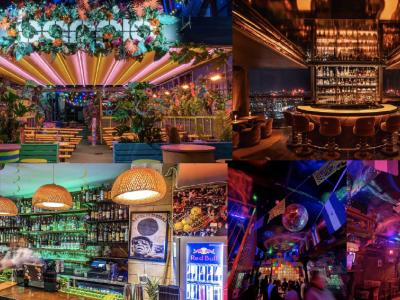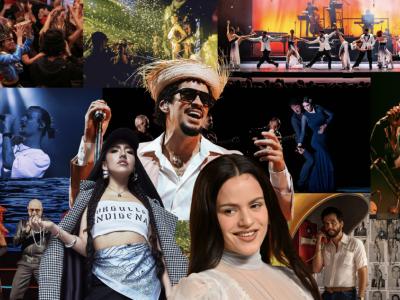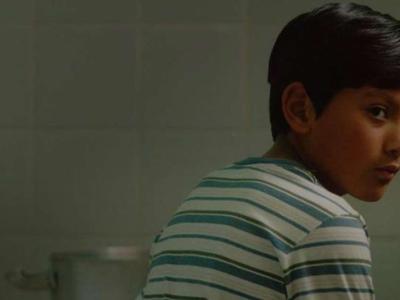Back in 1997, when a series of candidates for the presidential election met the Venezuelan community at the Bolívar Hall in London, Hugo Chávez made a strong assertion that took me by surprise. “Forty years of democracy - he said - have destroyed Venezuelan culture and my government will bring it back to its glory”.
This statement was based on a false premise and I told him in so many words during the meeting that the staff of the Embassy had with candidate Chávez the following day. He was curious to know what I had to say. I mentioned cultural initiatives and institutions that had been created by the different governments in the past 60 years. The first Service of National Folklore Research, for example, funded in 1946 by the poet and impresario Juan Liscano, who travelled around Venezuela recording more than a 1000 reels of tape of traditional music. This compilation was housed in FUNDEF (Fundación de Etnomusicología and Folklore), the end result of several intermediate institutions. There the compilation grew to more than10.000 recordings of music from Venezuela, the rest of Latin America and the Caribbean.
I also mentioned The Ateneo de Caracas, active in the promotion of unknown writers, The Bigott Foundation, The Polar Foundation, the 300 and more volumes of the Biblioteca Ayacucho, the press Monte Avila, the magazine Imagen, the invaluable collections of Venezuelan art at the National Gallery, the Museum of Fine Arts, the Central Bank, the Jesús Soto, Alejandro Otero and Jacobo Borges museums, plus the 144 regional museums, traditional music ensembles like Quinteto Contrapunto, Serenata Guayanesa, El Cuarteto, Un Solo Pueblo, the Group Odila, the dance band of Billo’s Caracas Boys, Aldemaro Romero’s Onda Nueva, the voices of María Teresa Chacín, Felipe Pirella and Oscar de León which had thrilled Venezuelan audiences of all sorts for decades; the popular theatre plays and soap operas of the likes of José Ignacio Cabrujas, Rodolfo Santana and Isaac Chocrón... I must have spoken like a machine gun because there was a lot to pack in a very short answer. To be fair: he listened very attentively.

Twelve years have passed since then and it is time to look back to try and find out not just what the Chávez Government has done to “bring Venezuelan culture back to its glory” but what it has done to culture in Venezuela more generally. The ideal thing for the culture of a country, in my opinion, is to have strong political backing of a non-political kind plus innovative entrepreneurship between business and artists. That is the only way to please majorities and minorities, in the understanding that every citizen is entitled to choose what manifestations of culture he or she wishes to enjoy, create and engage in. All those who have followed the country’s recent history will probably share with me the experience of what a Spanish comic strip of my childhood used to call “el diálogo para besugos”: that is, a non-dialogue, where one eye of the red bream looks to one side, the other in the opposite direction but never together ahead.
This incapacity to see what the other is seeing is what has stopped Venezuela from becoming the international cultural presence it should be. It takes the ultra-political wisdom of a man like José Antonio Abreu to develop what a friend of mine recently described as “the only thing Venezuelans agree about”: the SISTEMA of youth and children orchestras, a project where past and present plan the future, and of which both official and non-governmental forces are glad to be seen as supporters.
But I think my friend is wrong about the SISTEMA being the ONLY cultural project that Venezuelans can be proud of. There are other projects, systematically carried out by this Government which hardly receive a positive comment in the national press and that very few Venezuelans actually know about. I will dwell on two of them. The first is as elusive as it is beautiful: the Catalogues of Cultural Heritage. When I feel nostalgic and miss travelling around Venezuela, I cruise in the web any of the 160 catalogues that already exist and they provide me with the closest “Venezuelan experience” I can have from abroad. They will soon become a formidable research tool for those interested in the country’s culture at large. The idea behind these painstakingly researched and fully illustrated publications is as clear as water: let the people of the 336 municipalities of Venezuela say what they think their cultural values are. What’s more, the Catalogue’s history is one of continuity. Between 1996 and 1998, (pre-Chavez) a large group of anthropologists, conservationists, architects, and sociologists scoured the country registering buildings, collections, archaeological sites and certain collective activities in what was to be the “Pre-inventory and Inventory of Cultural Assets”.
In 2003, up-dating this previous register, the new Institute of Cultural Heritage, created by the Chavez administration, envisaged a full Census of National Cultural Heritage that would include many of the things that had been left out: traditions such as myths, stories, chronicles, rituals, games, gastronomy, popular medicine, artisans and artists, remarkable people, and creative activities of all sorts. What the Brazilians call “Pontos di Cultura”. The assemblage of the 2004-2009 catalogues is classified in five categories: objects, buildings, individual creations, oral traditions and collective manifestations. These catalogues are also printed, sold and distributed freely among the communities, schools and universities. With fingers crossed, even with budget cuts, we shall see this ambitious initiative completed. Another project I have found to be well thought through and energetically put together is the one developed by the Centre for Cultural Diversity, an institution which takes on the space and functions of FUNDEF, but expands and extends them into many other directions under one fundamental vision: to connect Venezuela culturally. This may seem obvious but from a distance, people don’t realise how fragmented the culture in Venezuela is.
To give an example: I spent a week in Margarita in 2003, where I listened to group after group of musicians. I was particularly struck by the wonderful voice and musicality of a well established singer called Lucienne Sanabria. She sang an entrancing repertoire of “puntos del navegante”, “polos margariteños” and so forth that had me dreaming for days. I then flew to Mérida, and continued by car to Barinas, Portuguesa, Yaracuy, Lara, Anzoátegui and finally Caracas. In every one of these states I had contact with artists and cultural promoters but wherever I mentioned Lucienne Sanabria, she was unknown and her CDs, nowhere to be found. She had only once performed in Caracas, I later learned. Is this normal? No, it isn’t.
It is absurd and un-economical to have a country chock-a-block with great artists who never reach national audiences because nobody beyond their immediate environment knows they exist. In order to connect the dysfunctional cultural body of Venezuela, Benito Irady and his team of the Centre for Cultural Diversity have a policy with four strategic lines of development. They research, they connect people involved in cultural activities nationally and internationally, they enhance their ethnographic collections and they study the legal framework for a chapter on Cultural Diversity in the proposed Organic Law of Culture. They have organised four impressive Hundred Days Forums to link the promoters and artists of each municipality to those of other communities. The Centre in Caracas has subsidiary Houses of Cultural Diversity where the research, the presentations and exhibitions and the care of the collections are carried out. Out of 24, ten states already have a House for Cultural Diversity and the next ones are planned for 2010-13. If we analyse other governmental initiatives, beginning with the Law of Social Responsibility of Radio and Television, the Villa del Cine, the musical catalogue VenezuelaDemo, the digitalisation of the Ayacucho Collection, the massive printing and distribution of books, the creation of 8.000 libraries, we will find as common denominator the will to reach out, facilitate and provide cultural tools to those who had little or no access to them in the past.
Nobody can deny the effort and resources spent in this domestic cultural vision. In the international arena, however, excluding the phenomenon of the SISTEMA, sparse initiatives of a few cultural attachés, the Centre for Cultural Diversity, and the participation in the Venice Biennale, next to nothing has yet been achieved. In the most recent proposal for an Organic Law of Culture which dates from 2006, the world outside Venezuela is not even mentioned. It is clear that the Government has neither envisaged a consistent cultural diplomacy nor the placement of its cultural products abroad. No think-tank of connoisseurs in and outside government, no body of trustees, has ever met to consult in order to invent, develop and coordinate an effective way of showing to the world that Venezuelan culture is worthy of attention. It may still happen that the most cultivated minds coming from all political and private spheres in Venezuela will design a properly funded strategy of cultural diplomacy, that includes world-tours of the best Venezuelan music, dance and theatre shows with stops in the great international festivals. This would entail Venezuelan stands in the fairs where works of art, books, shows, music, crafts, films and television programmes are shown, traded and distributed to ample markets. It would mean itinerant exhibitions, Venezuelan films in foreign cinemas, the offer of Venezuela as a cultural destination in world travel fairs, presence in the media and a sufficient and exclusive budget in the embassies for their own cultural activities and for the support of those coming from the enlightened body of trustees.

Last, but not least, Venezuela needs to engage in continuous cultural co-operation with other countries. If our good neighbours from Itamaratí, in Brazil, can do it, why can’t we? Going back to the only conversation I ever had with Hugo Chavez, I realise in retrospect that, being considerably older than him, I was able to remember in the flesh much more than he could have done. And like me, many Venezuelans of my generation who were lucky enough to enjoy the cosmopolitan aura that Caracas had for at least 25 years. It is not an easy thing for a country to boast of a cosmopolitan capital, but that’s exactly what Caracas was then: the place where the best in the world could be seen, heard and experienced.
Many years, resources and connections are required to create such a state of affairs and to destroy it is like cutting down a huge portion of the Amazon which will take decades to grow back to its former splendour. And this sadly, has also been happening. A detrimental factor of this government’s cultural policy has been its narrowing radicalisation, its interventionism and disregard for what others do, in particular those in the opposition, in an almost sinister policy of the “quítate tú pa’ponerme yo”. I could not find a book of Eugenio Montejo in Caracas last year in January and no homage has been paid to Venezuela’s greatest poet after his death. Yet the Librerías del Sur are beautifully turned out and full of new publications; an analysis of their catalogues might reveal a very limited scope of interests. The de facto eviction - by not renewing the legal concession to use the venue - of an institution like the Ateneo de Caracas from premises it had occupied since 1958, and where up and coming Venezuelan artists could create, exhibit, present their plays, read their poetry, sing, play and act to a grateful audience, in order to install the New Experimental University of the Arts UNEARTE , where it either won’t fit or will be a very small one, sends ripples of fear to those who have so far believed in the Chávez Government’s commitment to a truly plural Venezuela. The great museum directors who were dismissed in 2001, who knew how to turn the institutions under their care into thinking spaces, and who were genuinely interested in the arts education for all, have not been replaced by their equals. I remember the exquisite curatorship of the late Miguel Arroyo, the resourcefulness and international connections of Sofía Imber, the intellectual drive and imagination of María Elena Ramos. Where is it all gone?
The tour of the Fine Arts, National Gallery and Contemporary Art museums which I religiously undertake every time I go to Caracas, in March 2008 the most recent, was dispiriting, fundamentally because they were empty and the exhibitions frankly mediocre. The museums looked impoverished by comparison to their former days. Has this changed since? I was in Bogotá last year, enjoying with other hundred thousand bogotanos their splendid theatre festival and grieving for the loss of my own, the first international theatre festival of Latin America, older than London’s LIFT. Will the directors of the Ateneo de Caracas survive the struggle to keep it alive? Why must this be? Where are the great professionals that Venezuela had, why are they not contributing with their knowledge and their love of art to the national cultural scene? If you are going to put yourself instead of another, then you have to be better. And that has still to be proven. To summarise: the Chávez government has in my view achieved great many things in domestic cultural policy, but it lacks as yet an international cultural policy, and has both developed further and unnecessarily hindered well sounded initiatives from the past, by those who had “destroyed Venezuelan culture”. There is still time to keep the good work, to think about the convenience of a consistent cultural exchange with other countries, and to foster truly open multiculturalism. A country that has turned classical music into a massive source of entertainment can do that and more.















